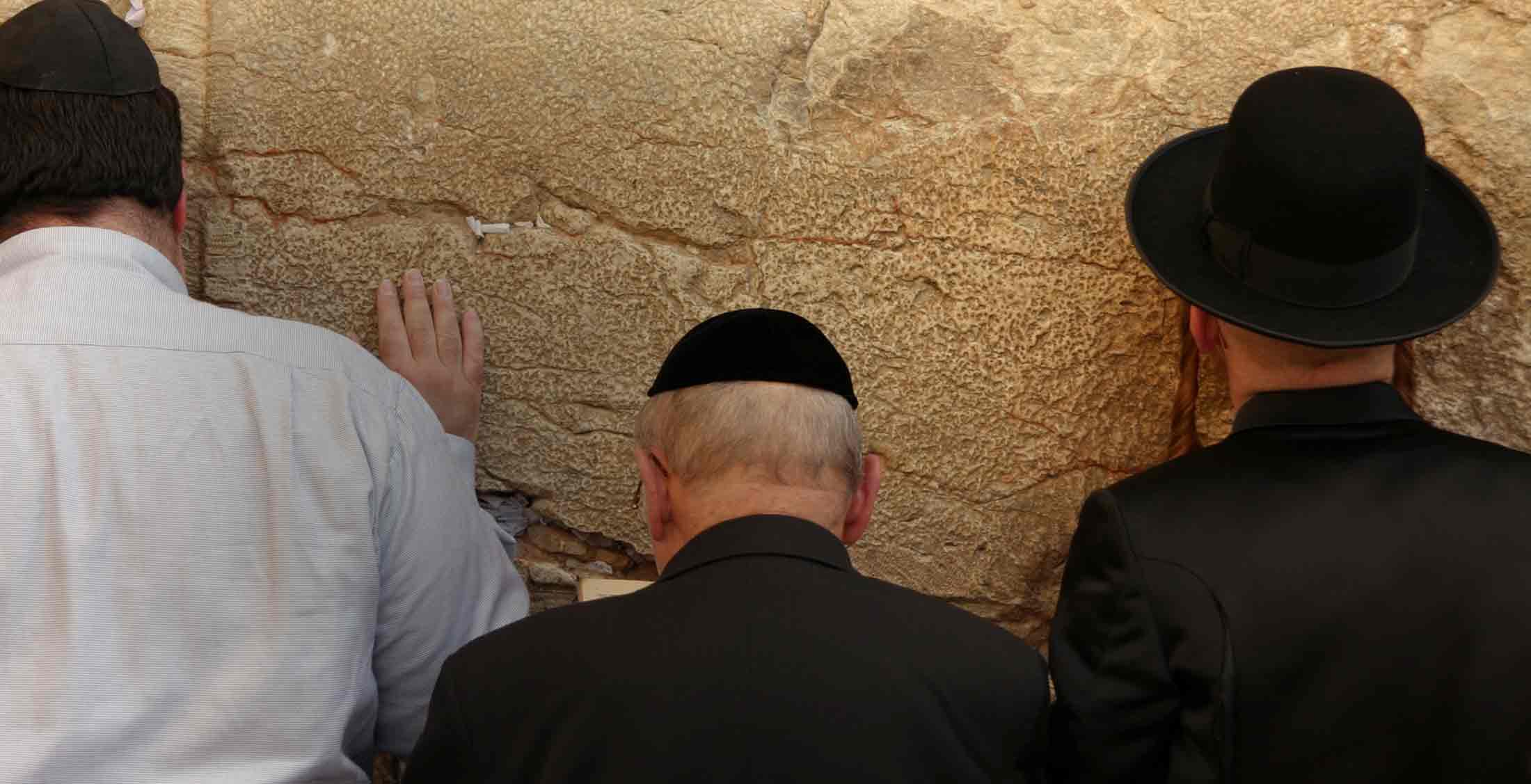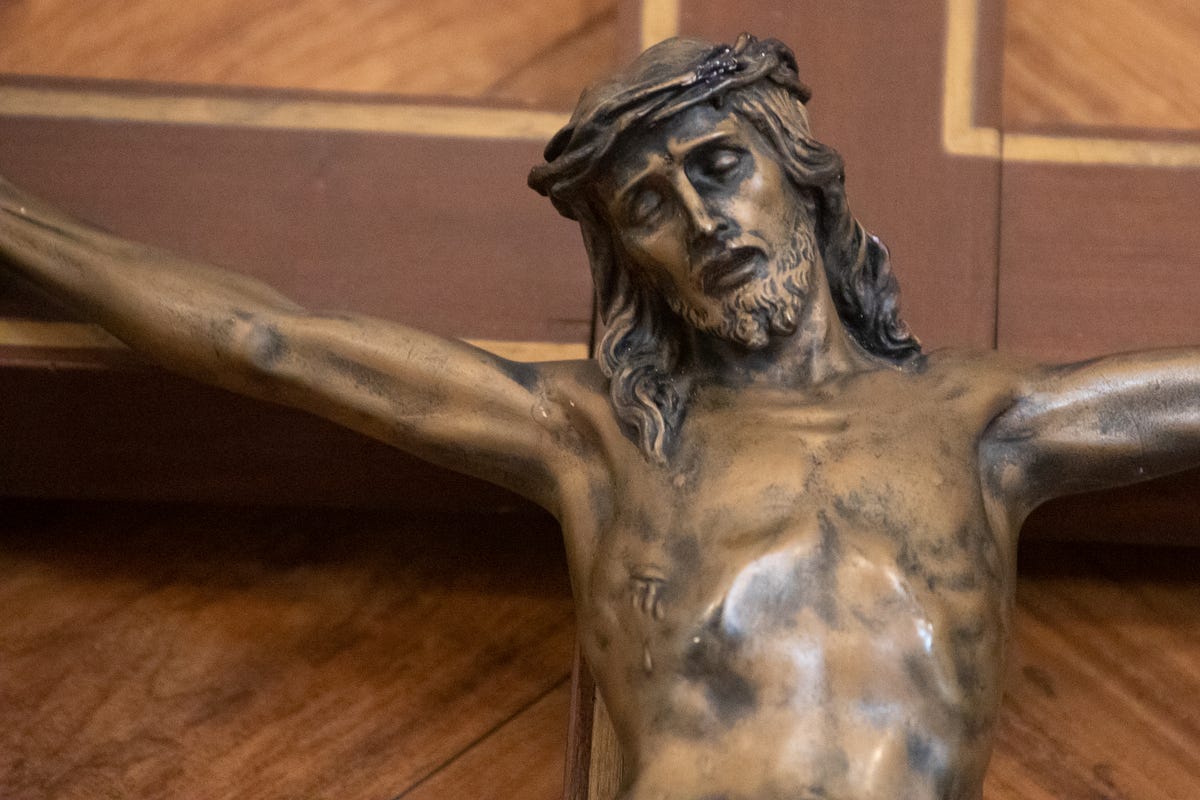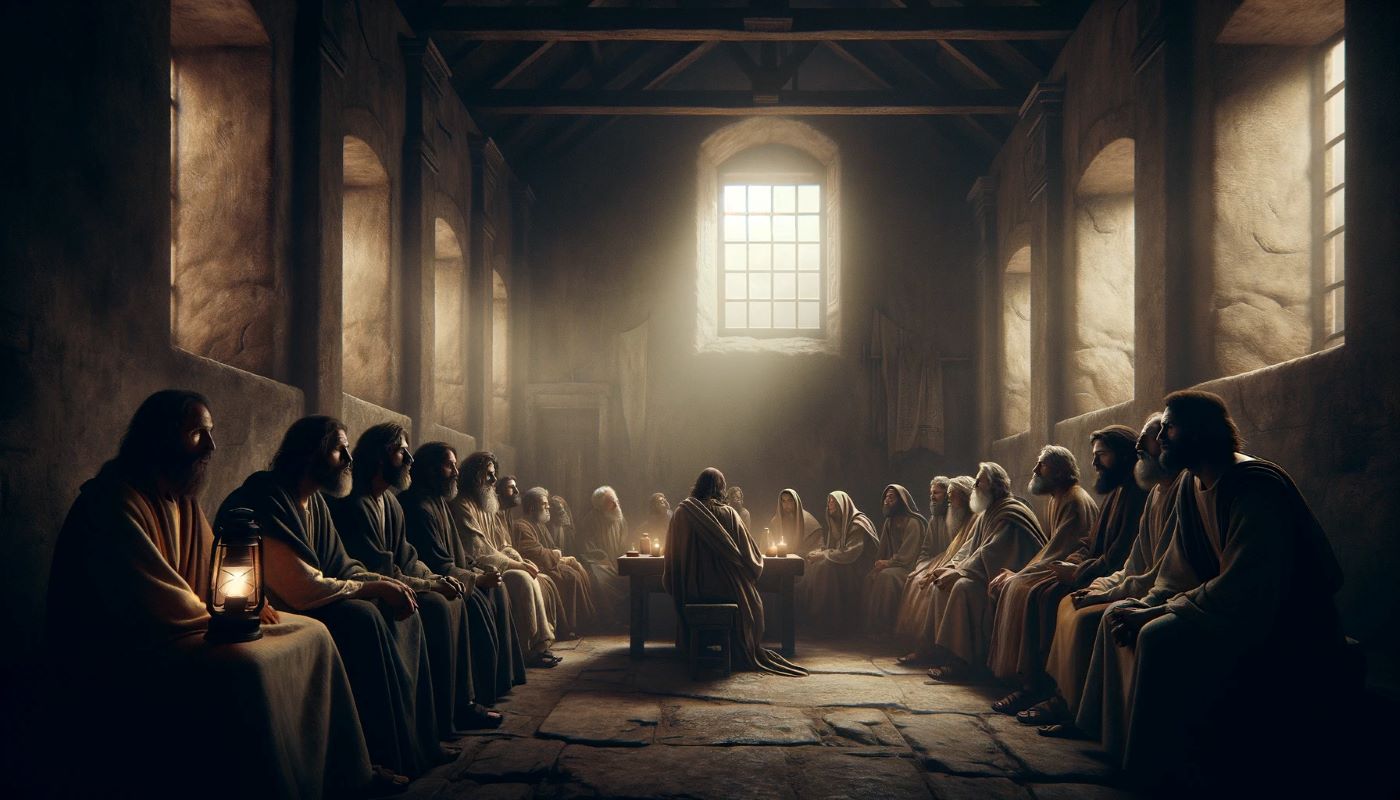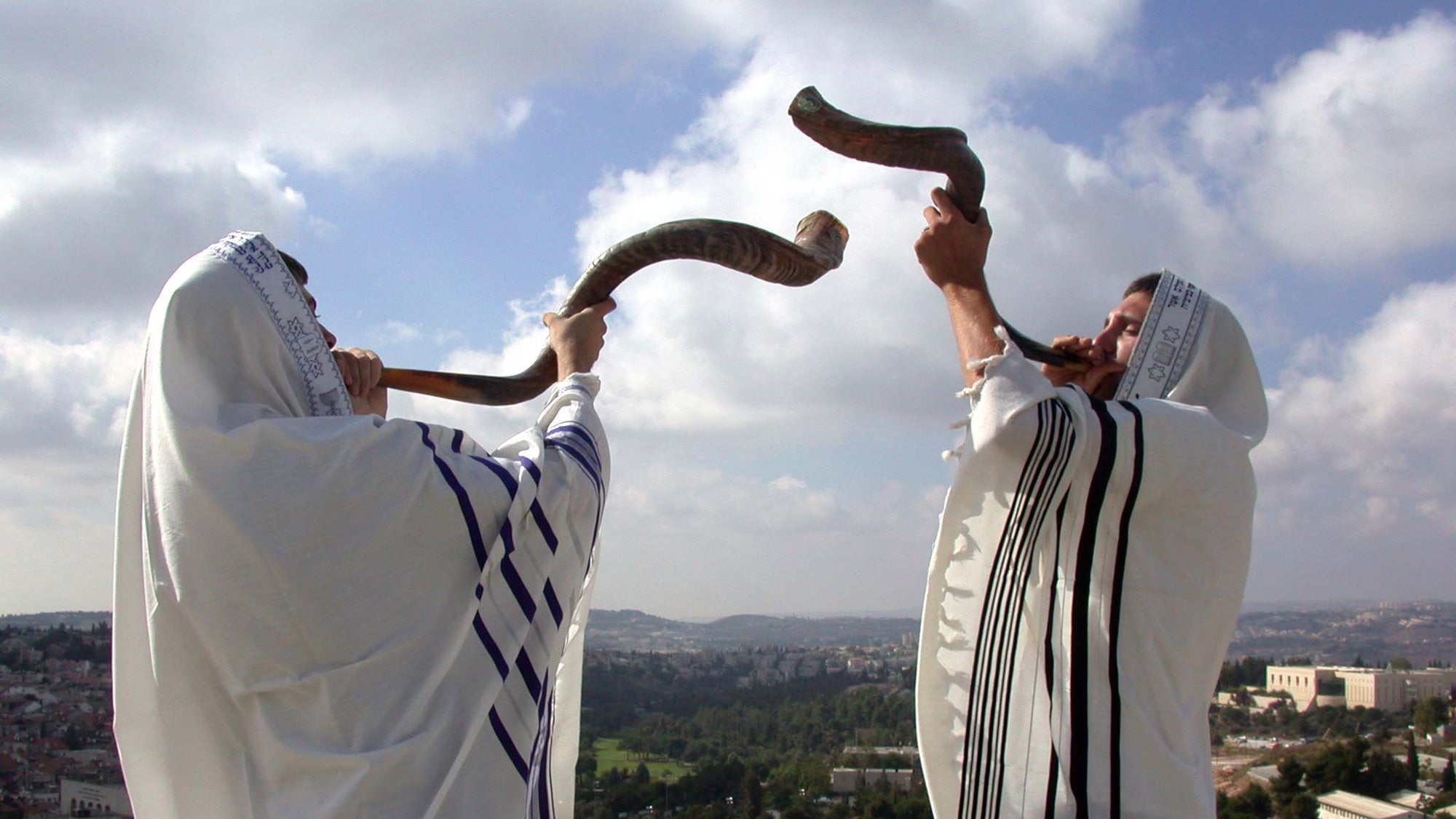Home>Theology and Spirituality>What Do Jews Do Today Regarding Atonement For Sins


Theology and Spirituality
What Do Jews Do Today Regarding Atonement For Sins
Published: February 10, 2024
Jason DeRose, Managing Editor at Christian.net, uses his expertise in religion and journalism to deepen understanding of faith's societal impacts. His editorial leadership, coupled with a strong academic background, enriches the platform’s diverse content, earning him recognition in both journalism and religious circles.
Discover the modern practices of atonement for sins in Judaism today. Explore the theological and spiritual significance of these rituals. Gain insight into the evolving traditions of Jewish theology and spirituality.
(Many of the links in this article redirect to a specific reviewed product. Your purchase of these products through affiliate links helps to generate commission for Christian.net, at no extra cost. Learn more)
Table of Contents
Introduction
Atonement, the act of seeking forgiveness and reconciliation for wrongdoing, holds profound significance in various religious traditions. Within Judaism, the concept of atonement is deeply rooted in history and spirituality, shaping the practices and beliefs of the Jewish community. Understanding the contemporary approach to atonement among Jews requires an exploration of both historical and modern perspectives.
The journey of atonement in Judaism is a tapestry woven with threads of repentance, forgiveness, and spiritual renewal. It reflects the enduring commitment to seek reconciliation with the divine and with fellow human beings. From the ancient rituals of sacrifice to the introspective practices of today, the evolution of atonement in Judaism offers a compelling narrative of faith and resilience.
In this article, we will delve into the historical atonement practices that have shaped Jewish traditions, examining their cultural and spiritual significance. We will then shift our focus to the modern-day expressions of atonement within the Jewish community, exploring how these practices continue to resonate with the faithful in contemporary times.
By shedding light on the observance of Yom Kippur, the holiest day in the Jewish calendar, we will uncover the central role of atonement in Jewish religious life. Furthermore, we will explore the deeply personal and introspective nature of atonement practices, illustrating how individuals engage in the profound journey of seeking forgiveness and spiritual renewal.
Through this exploration, we aim to gain a deeper understanding of how Jews today approach atonement for sins, drawing from the rich tapestry of tradition and spirituality that has shaped their faith for millennia.
Historical Atonement Practices
Historical atonement practices within Judaism are deeply rooted in ancient rituals and traditions, reflecting the cultural and spiritual tapestry of the Jewish people. One of the most notable historical atonement practices is the offering of sacrifices, a central aspect of religious life in ancient Israel. The act of presenting offerings, such as animals or produce, at the Temple in Jerusalem was intricately linked to seeking atonement for transgressions and expressing gratitude to the divine.
The sacrificial system, as outlined in the Torah, provided a framework for the atonement process, emphasizing the significance of acknowledging wrongdoing and seeking reconciliation with God. The rituals surrounding sacrifices were imbued with profound symbolism, representing the desire to restore harmony and spiritual purity. The careful observance of these practices underscored the importance of accountability and repentance in the pursuit of atonement.
Furthermore, the observance of Yom Kippur, the Day of Atonement, emerged as a pivotal moment in the annual calendar of atonement for the Jewish community. This sacred day was marked by solemn gatherings and profound introspection, as individuals sought forgiveness for their transgressions through prayer, fasting, and acts of repentance. The rituals associated with Yom Kippur were deeply intertwined with the historical narrative of the Jewish people, serving as a powerful reminder of the enduring commitment to seeking atonement and spiritual renewal.
The historical atonement practices of Judaism not only provided a framework for seeking forgiveness but also fostered a profound sense of communal solidarity and spiritual resilience. The collective observance of atonement rituals served to strengthen the bonds of faith and identity among the Jewish people, reinforcing the enduring values of repentance, forgiveness, and reconciliation.
As the historical landscape of Judaism evolved, the atonement practices underwent transformation, adapting to changing circumstances while retaining their intrinsic significance. The legacy of historical atonement practices continues to resonate within the rich tapestry of Jewish tradition, shaping the contemporary expressions of seeking forgiveness and spiritual renewal.
The historical atonement practices of Judaism serve as a testament to the enduring commitment to seeking reconciliation and spiritual purity, reflecting the profound resilience and faith of the Jewish community throughout the ages.
Modern Atonement Practices
In contemporary Judaism, the landscape of atonement practices has evolved to resonate with the complexities of modern life while remaining deeply rooted in tradition and spirituality. The transition from historical atonement rituals, such as sacrificial offerings, to modern-day expressions of seeking forgiveness reflects the enduring relevance of atonement in Jewish religious life.
One of the prominent modern atonement practices is the emphasis on personal introspection and accountability. Individuals engage in deep self-reflection, acknowledging their shortcomings and seeking to make amends for their actions. This introspective approach to atonement underscores the profound personal responsibility inherent in seeking forgiveness, emphasizing the transformative power of genuine remorse and the commitment to positive change.
Additionally, acts of charity and kindness have become integral to modern atonement practices within the Jewish community. The concept of tzedakah, or charitable giving, holds significant importance in seeking atonement and spiritual renewal. By engaging in acts of compassion and generosity, individuals not only contribute to the well-being of others but also cultivate a sense of empathy and interconnectedness, fostering a spirit of reconciliation and goodwill.
Furthermore, the tradition of engaging in meaningful dialogue and seeking reconciliation with those who have been wronged has emerged as a vital aspect of modern atonement practices. The process of seeking forgiveness from others, coupled with genuine efforts to repair fractured relationships, reflects the profound commitment to interpersonal harmony and the restoration of trust. This interpersonal dimension of atonement underscores the transformative power of humility, empathy, and the willingness to bridge divides through sincere reconciliation.
Moreover, the observance of Yom Kippur continues to hold profound significance as a cornerstone of modern atonement practices. On this holiest day in the Jewish calendar, individuals engage in prayer, fasting, and communal reflection, seeking forgiveness for their transgressions and reaffirming their commitment to spiritual renewal. The collective observance of Yom Kippur serves as a poignant reminder of the enduring relevance of atonement in contemporary Jewish religious life, fostering a sense of communal solidarity and shared spiritual journey.
In navigating the complexities of modernity, the atonement practices within Judaism have evolved to encompass a deeply personal, communal, and spiritual tapestry, reflecting the enduring commitment to seeking forgiveness, reconciliation, and spiritual renewal in the contemporary world.
Yom Kippur and Atonement
Yom Kippur, known as the Day of Atonement, stands as the holiest and most solemn day in the Jewish calendar, carrying profound significance in the pursuit of atonement and spiritual renewal. This sacred day is marked by a collective journey of introspection, repentance, and seeking forgiveness, reflecting the enduring commitment of the Jewish community to reconcile with the divine and with one another.
The observance of Yom Kippur begins with Kol Nidre, an evocative evening service that sets the tone for the solemnity and introspection that permeate the day. As the congregation gathers, the haunting melody of Kol Nidre reverberates, evoking a sense of reverence and introspection. This poignant prayer, with its solemn plea for the annulment of vows and commitments, serves as a poignant reminder of the human capacity for fallibility and the enduring need for divine mercy and forgiveness.
Central to the observance of Yom Kippur is the practice of fasting, refraining from physical indulgence as a symbolic gesture of spiritual purification and self-discipline. The act of fasting serves as a profound expression of devotion and humility, inviting individuals to transcend their physical needs and focus on the spiritual dimensions of atonement and renewal.
The day unfolds with a series of prayer services, each punctuated by moments of collective confession and introspection. The haunting melody of the Vidui, the confessional prayer, reverberates through the sanctuary as individuals collectively acknowledge their transgressions and seek divine forgiveness. This deeply personal and communal act of confession underscores the transformative power of humility and accountability in the pursuit of atonement.
Moreover, the concept of teshuvah, often translated as repentance or return, lies at the heart of Yom Kippur. Individuals engage in a process of teshuvah, reflecting on their actions, seeking to make amends, and committing to positive change. This introspective journey of teshuvah embodies the profound resilience and capacity for spiritual renewal inherent in the human experience.
As the day draws to a close, the poignant Neilah service unfolds, marking the culmination of the Yom Kippur observance. The gates of prayer are described as closing, symbolizing the profound opportunity for spiritual transformation and renewal that Yom Kippur offers. The collective fervor of the Neilah service encapsulates the unwavering commitment of the Jewish community to seek forgiveness and embrace spiritual renewal.
Yom Kippur, with its profound rituals and introspective journey, serves as a poignant reminder of the enduring relevance of atonement in Jewish religious life. It embodies the timeless pursuit of reconciliation, forgiveness, and spiritual purity, resonating with the faithful as a sacred opportunity for personal and communal renewal.
Personal Atonement Practices
In contemporary Judaism, personal atonement practices encompass a deeply introspective and transformative journey of seeking forgiveness and spiritual renewal. Individuals engage in profound self-reflection, acknowledging their shortcomings and transgressions, and actively seeking avenues for personal growth and reconciliation.
Central to personal atonement practices is the concept of teshuvah, often translated as repentance or return. This multifaceted process involves introspection, remorse, and the commitment to positive change. Through teshuvah, individuals confront their past actions, seeking to make amends and embrace a path of spiritual and ethical renewal. This introspective journey embodies the profound resilience and capacity for personal transformation inherent in the human experience.
Acts of charity and kindness play a pivotal role in personal atonement practices within the Jewish community. The tradition of tzedakah, or charitable giving, holds significant importance in seeking atonement and spiritual renewal. By engaging in acts of compassion and generosity, individuals not only contribute to the well-being of others but also cultivate a sense of empathy and interconnectedness, fostering a spirit of reconciliation and goodwill.
Moreover, the practice of engaging in meaningful dialogue and seeking reconciliation with those who have been wronged has emerged as a vital aspect of personal atonement. The process of seeking forgiveness from others, coupled with genuine efforts to repair fractured relationships, reflects the profound commitment to interpersonal harmony and the restoration of trust. This interpersonal dimension of atonement underscores the transformative power of humility, empathy, and the willingness to bridge divides through sincere reconciliation.
The deeply personal nature of atonement practices underscores the profound responsibility and agency of individuals in seeking forgiveness and spiritual renewal. It reflects a commitment to introspection, accountability, and the transformative power of genuine remorse in the pursuit of personal and ethical growth.
In navigating the complexities of modernity, personal atonement practices within Judaism offer a deeply introspective and transformative journey, reflecting the enduring commitment to seeking forgiveness, reconciliation, and spiritual renewal in the contemporary world.
Read more: Why Is Blood Atonement Necessary For Sin
Conclusion
The journey of atonement within Judaism traverses the tapestries of history, spirituality, and personal introspection, weaving a narrative of resilience, reconciliation, and spiritual renewal. From the ancient rituals of sacrifice to the contemporary expressions of seeking forgiveness, the evolution of atonement practices reflects the enduring commitment of the Jewish community to reconcile with the divine and with one another.
The historical atonement practices, rooted in ancient rituals and traditions, underscore the cultural and spiritual significance of seeking forgiveness and reconciliation. The sacrificial system and the observance of Yom Kippur served as poignant reminders of the enduring values of repentance, forgiveness, and communal solidarity. These historical practices, while evolving over time, continue to resonate within the rich tapestry of Jewish tradition, shaping the contemporary expressions of seeking forgiveness and spiritual renewal.
In the modern landscape, atonement practices have evolved to encompass a deeply personal, communal, and spiritual tapestry, reflecting the complexities of contemporary life while remaining deeply rooted in tradition. The emphasis on personal introspection, acts of charity and kindness, and the pursuit of meaningful reconciliation underscores the transformative power of seeking forgiveness and embracing a path of spiritual and ethical renewal.
Yom Kippur, the holiest day in the Jewish calendar, stands as a poignant embodiment of the enduring relevance of atonement in Jewish religious life. The collective journey of introspection, repentance, and seeking forgiveness on Yom Kippur serves as a sacred opportunity for personal and communal renewal, fostering a sense of communal solidarity and shared spiritual journey.
In the deeply personal realm of atonement practices, individuals engage in profound self-reflection, acknowledging their shortcomings and actively seeking avenues for personal growth and reconciliation. The concept of teshuvah, acts of charity, and the pursuit of meaningful reconciliation underscore the transformative power of seeking forgiveness and embracing a path of spiritual and ethical renewal.
In conclusion, the contemporary approach to atonement within Judaism reflects the enduring commitment to seek forgiveness, reconciliation, and spiritual renewal. It embodies the timeless pursuit of personal and communal transformation, resonating with the faithful as a sacred opportunity to embrace the values of repentance, forgiveness, and the enduring resilience of the human spirit.














